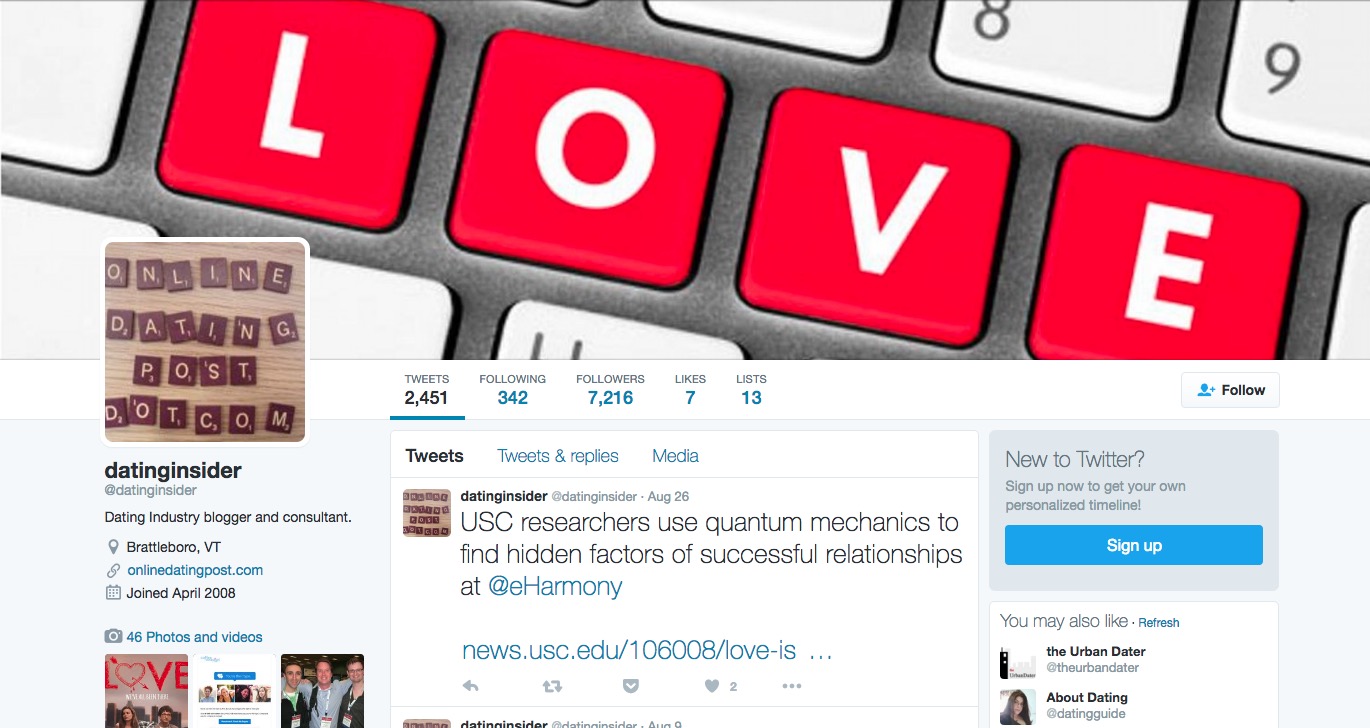Last summer at iDate in Los Angeles I introduced Frank Seifert & Larry Michel of Matchmatrix to Dr. Jim Houran and told them they should do something together.
Frank says:
After meeting at the June 2009 Los Angeles iDate conference, Jim Houran asked if we would be willing to submit MatchMatrix to scientific scrutiny to determine if it has real value and is more than just marketing hype. Interestingly, he made the same offer to the major dating sites and none of them chose to participate. I agreed to go ahead because unlike the other companies MatchMatrix has an objective way to measure its results. A six-month scientific study of the MatchMatrix compatibility system has been completed.
James Houran and Rense Lange have published a paper in the Journal of Media and Communication Studies, Preliminary validity data on a new matching tool to combat hyperpersonal communication in online dating.
Introduction
Singles often use compatibility tests of unknown validity to minimize the limitations of hyperpersonal communication inherent to online interactions. Thus, we conducted an online study to test a new matching system called MatchMatrix, which operates as an oracle in predicting friendship and lovers compatibility based on an analysis of birth dates. Indices positively correlated with scores on the Relationship Success Scale for unions of less than two years (N = 41), but patterns were essentially reversed for relationships of two years or more (N = 48). Additional research is needed to confirm the underlying theory behind the oracle and whether relationship accommodation is a parsimonious explanation for the disparate results.
Frank and Larry have written a paper as well, Exploring the Hypothesis of “Energetic Attractions” in Romantic Compatibility.
Abstract
Energetic compatibility — a concept consistent with bioelectrical energy systems — is a hypothesized variable argued to be an important augment to traditional biochemical and psychological models for sustained romantic attachment and love, which emphasize small physiological and psychological effects that produce large emotional, attitudinal and behavioral consequences. While several studies are shown to be consistent with predictions of an energetic compatibility model, recent research by Houran and Lange (in press) presented seeming paradoxical findings that we interpret as demonstrating the mediating effects of True versus False Attractions. Both of these attractions produce short-term relationships with similar questionnaire levels of relationships satisfaction (chemistry), but relationship quality breaks down for mature relationships (two years or longer in duration) that are not grounded in True Attractions and alignment across four well-defined Lifestyle Traits. The cumulative results suggest that accommodation or conventionalization that many experts claim represents healthy adaption for a couple might actually prove to be a defense mechanism as a couple tolerates or attempts to rationale an incompatible or unsatisfying relationship.
While a hypothesis, I find the concept of energetic compatibility intriguing. Now, what dating site is going to implement this system to see if it works in the real world?
A big Friday bravo to everyone striving to increase the effectiveness of matchmaking systems.

